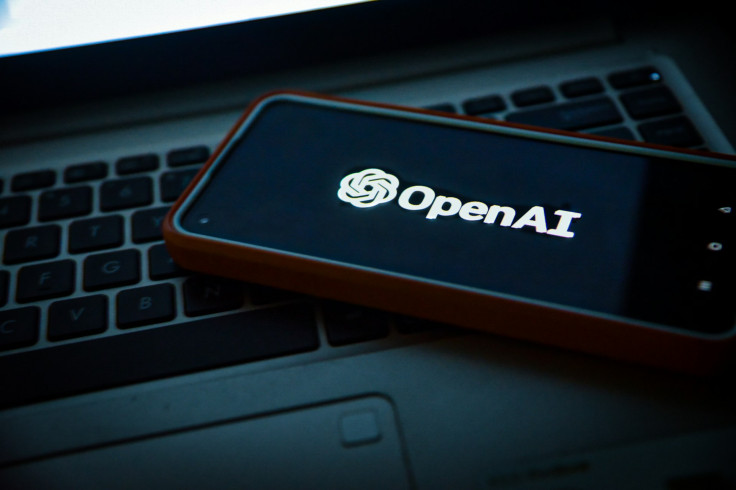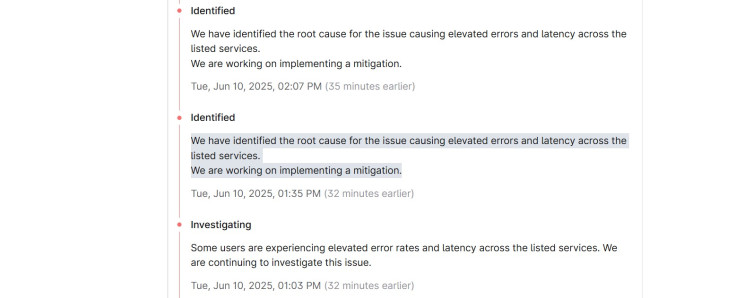
OpenAI's conversational AI, ChatGPT, recently stumbled again, as users across the globe experienced a partial outage on 10 June 2025. Warnings of elevated error rates, sluggish responses, and service disruption triggered concerns over how dependable AI tools truly are in a world increasingly reliant on them.
According to OpenAI's status page, the disruptions began at approximately 3 am ET (8 am in the UK), with users scrolling through unresponsive prompts and error messages such as 'something went wrong.' Outage‑tracker DownDetector recorded a sharp surge in issue reports, leaping from dozens to throttle‑breaking hundreds per minute.
OpenAI's status bulletin confirmed the extent of the fault: 'We have identified the root cause for the issue causing elevated errors and latency across the listed services.
We are working on implementing a mitigation.' Brief chaos ensued online, as students, developers and office workers found their digital assistant abruptly sidelined.

'A Digital Black‑Out for Students and Professionals'
Marketplace analysts describe the incident as a stark wake‑up call. An article by MarketWatch noted the outage's significance showed 'just how many people are using the artificial-intelligence service on a regular basis.' . Indeed, remote teams reported delayed projects, while A‑level students voiced frustration at losing their revision aid mid‑session .
On social media, the outage gained cultural relevance. In posts on X, users quipped about the chatbot's downtime, reflecting their frustration and, more so, their reliance on these tools.
Underlying Causes: Capacity, Over‑Load or Something More?
Technical experts suggest that rapid growth may be straining the system. The 'Ghibli effect'—a viral image‑generation feature introduced earlier this year—had recently pushed usage to record highs, prompting warnings that 'stuff to break, and for service to sometimes be slow as we deal with capacity challenges.'
On the outage day, users reported receiving 'too many concurrent requests', an indicator of overwhelmed servers. AI Business quoted Dynatrace's VP: 'The complexity of the IT systems underpinning public‑facing AI services ... makes ensuring reliability and resilience a challenge.'
Trust and Transparency: Can OpenAI Steady User Confidence?
For a service that now claims nearly a billion weekly active users, each outage risks eroding trust. As the Financial Times puts it, top AI providers, including OpenAI, 'may argue that transparency requirements will slow innovation and dull their competitive edge, but the recent history of AI suggests otherwise. These technologies have advanced on the back of collaboration and shared research. Reverting to those norms would only serve to increase public trust, and allow for more rapid, but safer, innovation.'
Others argue that alternatives to ChatGPT, such as Claude and Gemini, serve as lifelines during downtimes.
However, widespread disruption prompts an even bigger question: can reliance on a single AI provider remain sensible?
Looking Ahead: Infrastructure, Decentralisation and Redundancy
Experts advocate strengthened infrastructure, redundancy planning and, crucially, alternative AI options. OORT CEO Max Li warned: 'Outages in centralised infrastructure are not new and will happen again. The most significant trend now is decentralising AI deployment to edge devices.'
Meanwhile, DeepSeek and Claude saw usage spikes, suggesting AI consumers are diversifying.
Oopsie 😂 https://t.co/fJbBRvT6ni pic.twitter.com/I0K691GKw9
— Ivy (@0xweb3diva) June 10, 2025
Verdict: A Test of Maturity for AI Services
The June outage is more than a technical hiccup; it's a wake‑up call. As artificial intelligence matures into a mainstream utility, it must shed its early growing pains, from capacity constraints to trust deficits.
OpenAI's recovery is encouraging, but its challenge goes beyond bug‑fixing. The company must build resilience, enhance transparency, and foster an ecosystem of interoperable AI tools to ensure that one glitch doesn't unravel our work, studies, or creativity.
Because today's outage may not be just another incident, it could mark the tipping point when users say 'not again' unless AI proves dependable. The question now is: Will OpenAI rise to meet this test?







